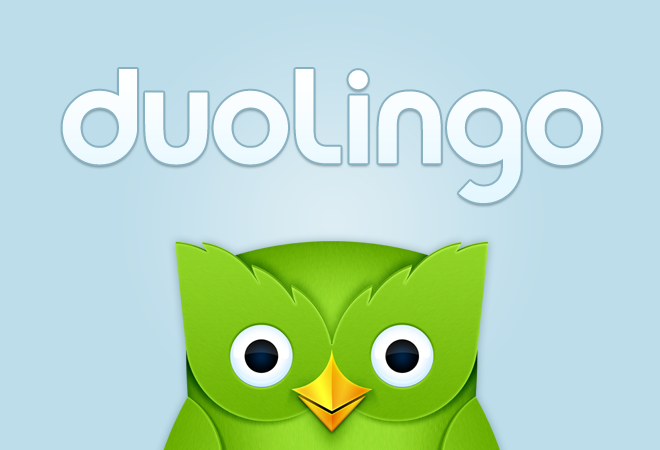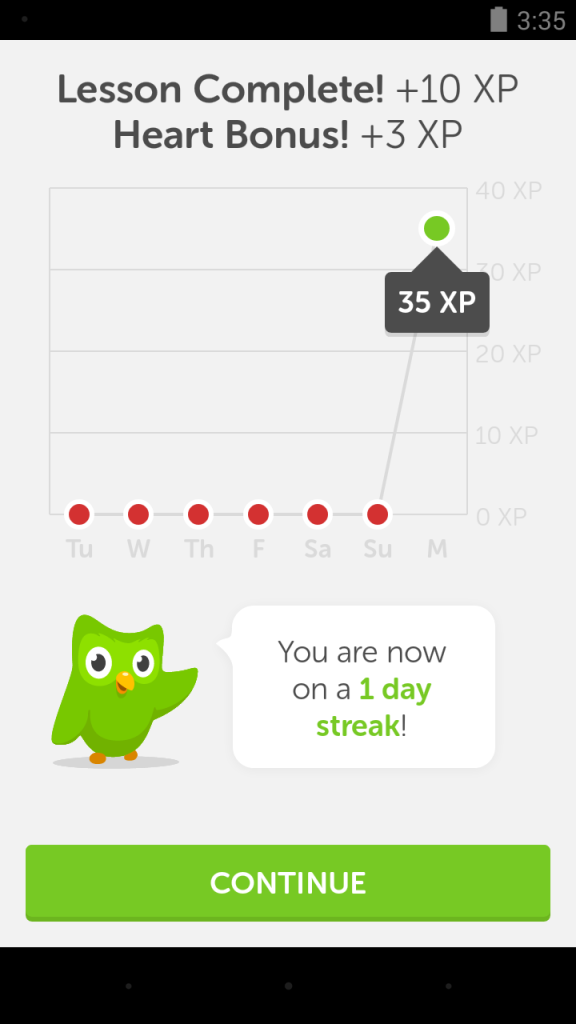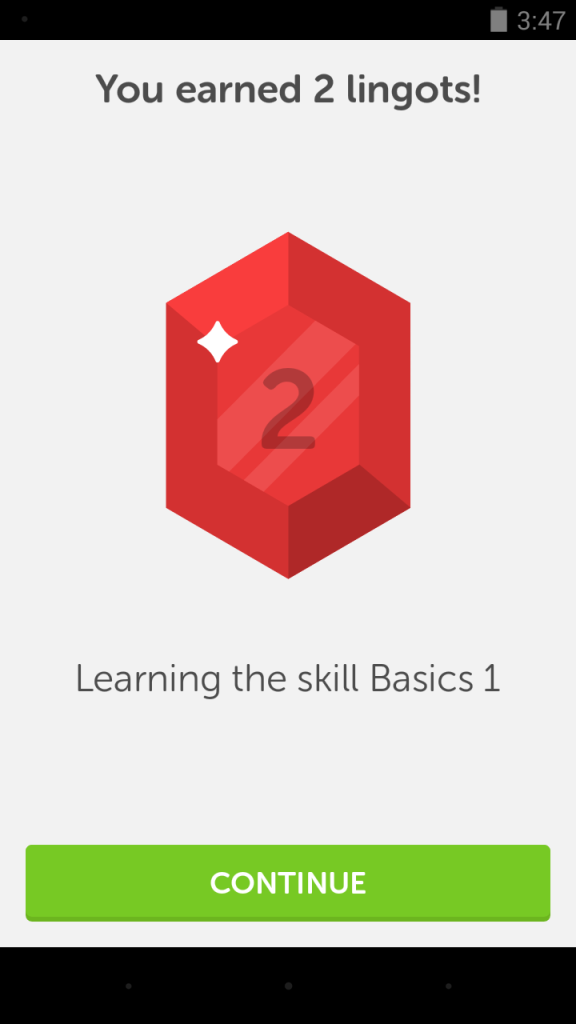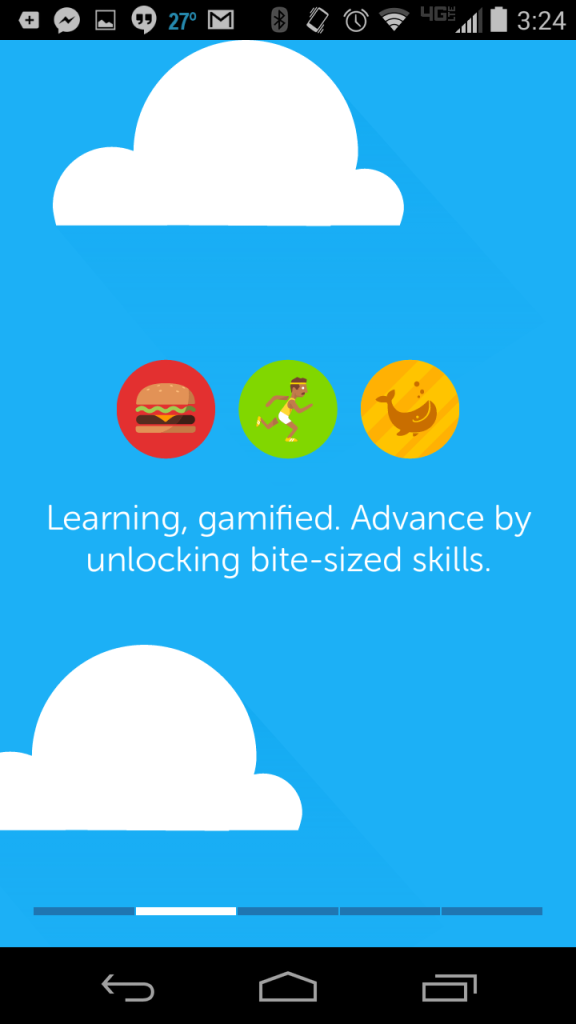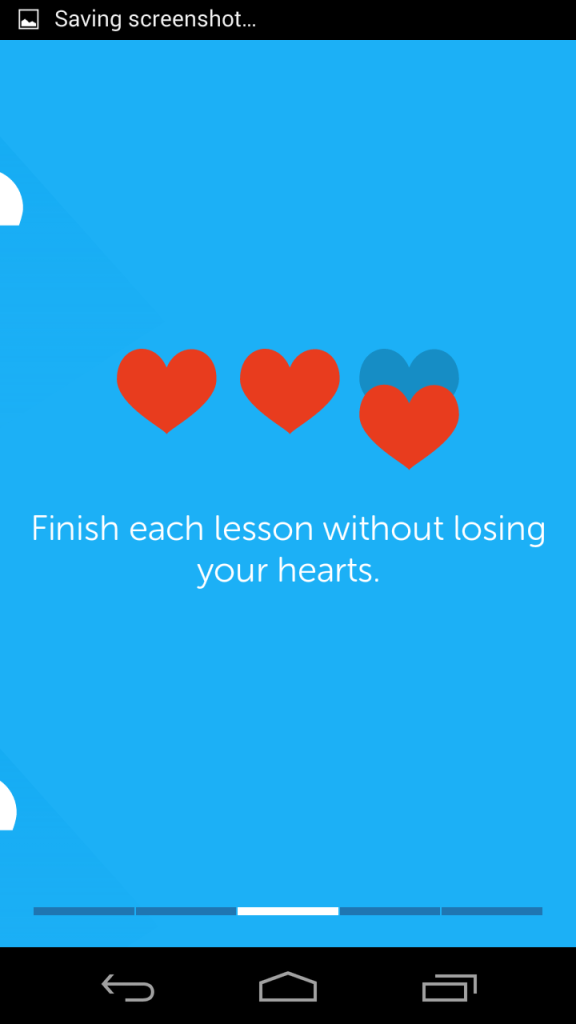Rosetta Stone isn’t the only option to learn languages quickly these days. In fact, free tools have been available for years for translation, most of it via your favorite portable gadgets–smartphones and tablets. While some of these tools diminish the need to actually speak a language to understand another person (Google Translate, for instance), there’s nothing quite like learning to communicate the old-fashioned way. God knows you always forget to pack your charging converter as is.
Enter Duolingo, a smartphone application that is completely free (RosettaStone infamously runs around $600), and can teach you a semester’s worth of numerous languages in just 34 hours of use. Not bad, eh? And it’s actually pretty successful according to independent studies. And even if it doesn’t work, it’s at least a fun learning tool. Duolingo is also very addicting due to the gaming nature of the app.
Duolingo works a bit like role-playing game. Users start out with lives (hearts), earn experience points for completion of lessons, and lose lives for too many mistakes or wrong answers. There are running tallies of experience, days, and vocab words successfully conquered, and all of these stats can be put to use by competing with actual friends in your social networks (Facebook and Google+). Duolingo encourages you to invite them. There’s also an in-game shop that allows gamers to purchase outfits for your owl avatar, extra hearts, and even bonus speech skills like “idioms” and “flirting.”
Other skill categories can also be explored but must be unlocked as you progress through the gauntlet. Food, Sports, Politics, and Imperative are just a few examples of the skills categories noted under German.
Duolingo is “played” by running through a series of exercises much like Rosetta Stone. Phrases in your language of choice will be introduced, and users must respond back in correct pronunciation over your microphone. Other exercises depend on typing correct text translations of sentences, or tapping the correct words or answers in relation to pictures and vocabulary.
But it’s more interactive in its function than noticeable at first glance. There’s a Utilitarian aspect to this tool being free, and the “Duo” suggests exactly that. The text used in each of these exercises is, in essence, helping translate the Web for the rest of the world. Users can input their own translation feedback on each question (think colloquial idiosyncrasies), and they can also receive answers to their own about foreign phrases in return. It’s a bit like a collaborative tutoring session. When you translate something correctly, you’ll also see other possible answers to translate that information. We’re not exactly sure how any of the basic “My name is…” lessons are going to help the internet be translated any better, but if nothing, it’s another goal in this game to make this tool feel more productive and fun.
Currently Duolingo is only able to teach five languages via English: German, French, Portuguese, Italian, Spanish. It has won Google Play’s Best of the Best and Apple’s App of the year in 2013. Check it out for yourself on Android or iOS.
Source: Duolingo

